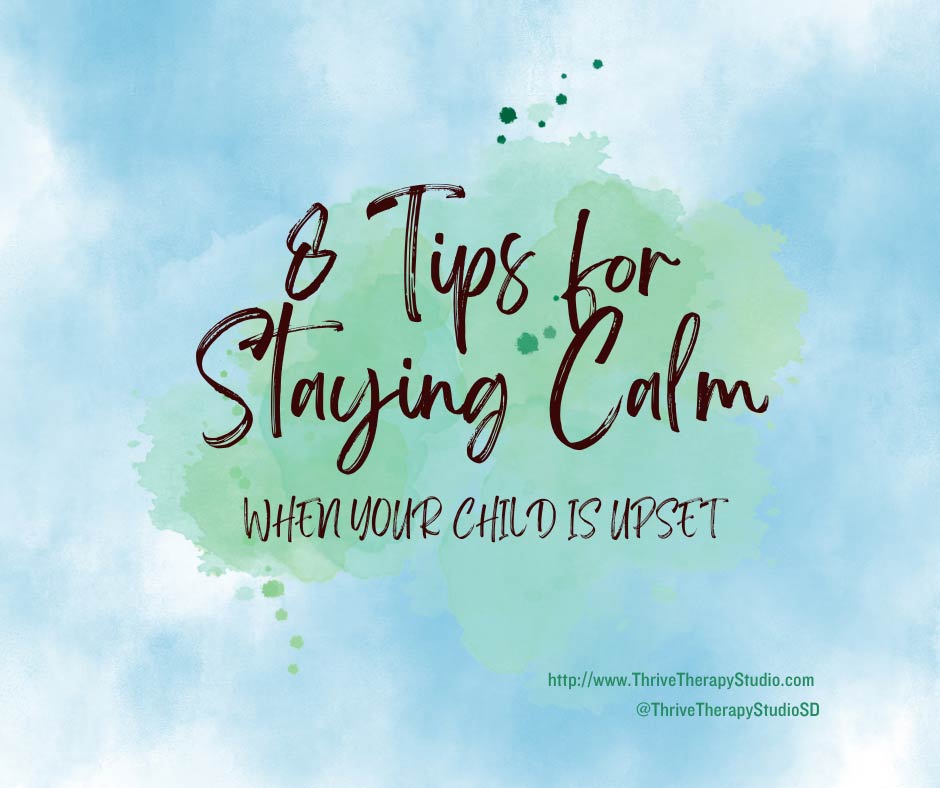Since I talk often in my work about children and their big emotions, I wanted to share some tips and ideas to help you keep your cool while your child is losing theirs!
Before we dive into the how-to’s of staying calm, it’s essential to recognize that your child’s emotional turmoil can stir up a whirlwind of emotions within you. It’s normal to feel a range of things, from empathy and concern to frustration and helplessness. Understanding these feelings and their sources is the first step toward managing them effectively
Staying calm in the face of your child’s upset is crucial for several reasons:
1. Role Modeling: Your child learns how to handle emotions by watching you. Staying calm teaches them that emotions are manageable and can be expressed in a healthy way.
2. Effective Communication: A calm demeanor fosters open and constructive communication. It allows your child to express themselves without fear of judgment.
3. Problem Solving: Being calm enables you to think more clearly and find solutions to the issues at hand.
1. Breathe: When you feel your frustration or anxiety building, take a moment to breathe deeply. Inhale for a count of four, hold for four, and exhale for four. This simple exercise can help you regain your composure.
2. Pause and Reflect: Before reacting to your child’s upset, take a brief pause. Ask yourself what’s triggering your emotions. This self-awareness can help you respond more thoughtfully.
3. Empathize: Put yourself in your child’s shoes. Try to understand what they’re feeling and why. Empathy can help you respond with compassion.
4. Stay Mindful: Mindfulness techniques can be incredibly helpful in staying calm. Techniques like meditation and grounding exercises can keep you in the present moment and reduce stress.
5. Set Boundaries: It’s okay to set boundaries with your child, even when they’re upset. Calmly let them know what behavior is acceptable and what isn’t.
6. Seek Support: Don’t hesitate to reach out to other parents, friends, or a therapist when you’re feeling overwhelmed. Talking to someone who understands can provide you with valuable guidance and emotional support.
7. Fill your cup: Don’t forget to take care of yourself. A well-rested, emotionally balanced parent is better equipped to handle their child’s emotional ups and downs.
8. Learn from Mistakes: Nobody’s perfect. If you lose your cool occasionally, it’s okay. Use those moments as learning opportunities for yourself and your child by discussing how you can handle things differently next time.
Staying calm when your child is upset is a challenging but essential aspect of parenting. It sets the stage for your child to learn emotional regulation and healthy communication. Remember that it’s normal to feel a whirlwind of emotions yourself, but by practicing deep breathing, empathy, mindfulness, and self-care, you can be a steady anchor for your child during their emotional storms. Stay calm, and you’ll not only navigate these challenging moments more gracefully but also strengthen the bond with your child, showing them that they can always count on your support and understanding.
Reach out to start
your healing journey


